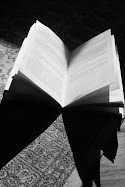Let’s start with a quick quiz: what do Marina Abramović (Serbian performance artist) and Tony Abbott (Australian prime minister) have in common?
Answer: they’ve both been filmed eating a raw onion. A whole one. In fact, Abramović ate three. “The first time, the light on video wasn’t so good. The second, sound was lousy. Third, I couldn’t speak or talk, my throat was burning.”
The Onion is one of 13 self-portraits at the beating heart of Private Archaeology, a new exhibition of Abramović’s work at Mona, the Museum of Old and New Art in Tasmania. Filmed between 1975 and 2002, these extreme video close-ups show the artist furiously brushing her hair, gnawing her cuticles, meditating, being strangled by a boa constrictor, and lying: under a pile of crystals, in shallow water, or upside down.
“Good art is never made in studio,” Abramović says. “Good art I make in life.”
The show is not a retrospective. Both Mona and Abramović are quite clear about that. Instead, it mixes recordings of her live performances – some solo, others made with the one-time love of her life, Ulay – with installations and interactive exercises from her Method, a series of mindfulness exercises developed at theMarina Abramović Institute in New York. There are also four cabinets filled with photos and notes from the artist’s personal archive in Amsterdam (the archaeology of the show title).
At the same time, she makes sure to resist nostalgia. “I change so many houses and places where I live; I change them like I change socks. I don’t have this absolute, kind of, how you say, attachment. My brother, if he just has to go to holiday to sleep in different bed, for him it is a disaster. I can sleep under this table or in a five-star hotel, I don’t care.
“The idea of being in the right place in the right time is most important.”
Right now, that place is Australia, three decades on from her first visit for the 1979 Sydney Biennale. It was after that trip that Abramović negotiated – throughland rights activist Philip Toyne, who died last week – a seven-month stay with the Pitjantjatjara and Pintupi people of the Western Desert. The experience was transformative, she says, something I hear her repeat many times to many people over the course of the weekend.
“It was a big base of my performance art – the idea of here and now – because their Dreamtime and songlines are not something that’s happening in the past or the future. It’s always happening. It’s always now. And that’s the same as time-based art; it’s immaterial. Only what matters is the present.”
She learned the same lesson in different ways, she says, from the monks of Tibet and the shamans of Brazil.
But it’s this kind of logic (or lack of it) that tends to drive Mona’s David Walshbonkers. When the pair share a stage on Sunday for a spirited public Q&A – Abramović in black jeans and biker boots this time, wearing her wry Slavic wit on her sleeve – he acknowledges as much: “Your sparkling magical thinking and my unpolished reductionist reality, these aren’t world views that coincide.”
Abramović: “I believe in everything by the way.”
Walsh: “And I don’t believe in anything.”
Abramović: “And this is our main connection here.”
“Everyone has his own love story,” Marina answers, with an imperceptible twinge. “That moment, that guy sitting in front of me, my whole life went through my head. Never mind this is life, never mind this is performance. This is pure human emotion. And that’s why everyone reacting. It’s performance that break into life.”
If there’s an ambiguity here, Abramović is happy to sit with it. At Sunday’s Q&A, she says: “There are three Marinas in me. The one Marina is very heroic. I just go for it. I don’t care how much pain inside. Then we have second Marina – very different, very spiritual, very emotional. Too emotional. Can cry all the time. Is kind of pain in arse. And then there is third one who really like bullshit. Who like fashion, who like eating chocolate. Who like to be lazy and doing nothing and try to avoid any hardship, any confrontation. All these are real.”
Like the onions, I think. Even if only one makes the final cut, they all counted. I’ve certainly met three Marinas in as many days at Mona.
An audience member asks if Abramović will add her voice to the campaign against the closure of Aboriginal communities – perhaps return to the desert and make a new work. “Art can’t change the world,” she responds, gentle but forceful at the same time. “It can only bring the consciousness and ask the questions. Like: why are politicians always oversexed, corrupt and do terrible things, yet we are the ones who are voting them?” The idea is left hanging.
“It’s not possible for one single artist to do all this – it’s a group work.”
- Marina Abramović: Private Archaeology is at the Museum of Old and New Art, Hobart, until 5 October. Marina Abramović: In Residence is at Pier 2/3, Sydney, from 24 June to 5 July
Nancy Groves travelled to Hobart courtesy of Mona and Tourism Tasmania









